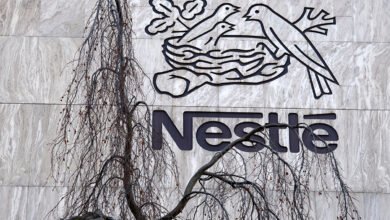
Middle East Crisis: UAE’s Quiet Diplomacy Prevents Escalation
Artillery fire echoes through the Middle East as nuclear threats cast long shadows. The UAE has emerged as a key peacemaker that works to prevent war by seeking diplomatic answers to ease tensions between Iran and Israel. Iran’s location between Central Asia, South Asia, and the Middle East connects it to seven countries. This makes any conflict escalation dangerous for regional peace. UAE President Sheik Mohammed bin Zayed Al Nahyan leads diplomatic talks to stop the fighting and prevent the Israel-Hamas war from growing worse.
The United Arab Emirates holds a special place in this tense situation. The UAE maintains good relations with Iran, Israel, and the United States at the same time. This makes the UAE perfectly suited to bring all sides together. A bigger conflict could hurt global oil supplies, especially if ships cannot pass through the Strait of Hormuz. These economic risks and the UAE’s ongoing support for Palestinians have helped the Gulf nation become a crucial diplomatic link during these political conflicts.
UAE deploys quiet diplomacy to defuse Iran-Israel tensions

Image Source: The Jerusalem Post
The UAE Ministry of Foreign Affairs has called for restraint to stop any conflict escalation between Iran and Israel. The ministry’s statements highlight diplomatic solutions, international law compliance, and respect for state sovereignty as the path to resolve current crises.
Mohammed bin Zayed Al Nahyan initiates direct talks with Iran
President Sheik Mohamed bin Zayed Al Nahyan took a personal step by reaching out to Iranian President Masoud Pezeshkian. His phone call welcomed the ceasefire agreement between Iran and Israel that could boost regional stability. On top of that, it reached out to all but one of these 36 countries to de-escalate tensions. This wide-ranging diplomatic push shows UAE’s dedication to preventing a broader conflict.
UAE manages to keep open channels with both Israel and Iran
The Emirates shows remarkable diplomatic flexibility by keeping open channels with both sides. Sheik Mohamed held deep talks with regional and international leaders from Kuwait, Qatar, Saudi Arabia, Oman, France, and Italy. The UAE built trust by waiving visa overstay fines for Iranian nationals, which strengthens its position as a trusted mediator.
Backchannel efforts intensify amid Israel-Hamas war backdrop
The UAE stepped up its behind-the-scenes diplomacy as tensions rose during the Israel-Hamas conflict. The Emirates created a backchannel between Israel and Syria. These talks started with security and intelligence but grew into a major diplomatic breakthrough. This channel opened after Syrian President Ahmed Sharaa visited the UAE in April 2025.
The UAE keeps emphasizing that peaceful dialog leads to lasting peace better than confrontation. The ministry has urged the United Nations Security Council to take quick action for a ceasefire and stronger international peace. Even in this tough regional climate, the UAE stays committed to finding diplomatic answers.
Gulf states issue warnings as UAE leads de-escalation push
Image Source: Middle East Institute
Nations across the Arabian Peninsula have issued unified warnings against military escalation between Iran and Israel. The UAE has emerged as a key player in regional peace efforts.
Saudi Arabia and Oman echo UAE’s call for restraint
Saudi Arabia showed “great concern” after attacks on Iranian nuclear sites. The Kingdom stated its “condemnation and denunciation of violating the sovereignty of the Islamic Republic of Iran”. They urged everyone to “exert all efforts to exercise restraint, de-escalate, and avoid escalation”. Oman, which has long mediated US-Iran nuclear talks, strongly rebuked the situation and expressed “deep concern, denunciation and condemnation of the escalation resulting from the direct air strikes”.
Qatar warned that the region’s “dangerous tension currently witnessed in the region will lead to catastrophic repercussions at the regional and international levels”. Egypt’s leaders cautioned that ongoing escalation could bring “serious consequences for both regional and international peace”.
Statements reflect fear of regional spillover
Leaders have coordinated their messages due to deep concerns about conflict spreading beyond Iranian borders. The UAE’s Sheik Mohamed bin Zayed, Saudi Crown Prince Mohammed bin Salman, and leaders of Kuwait and Qatar held emergency talks to prevent wider instability. They stressed that current hostilities could bring “serious repercussions for the region and the world”.
Gulf states put their defense forces on high alert. Saudi Arabia implemented stronger security measures while Kuwait’s defense council stayed in “permanent session”. These actions highlighted fears that military bases with American forces could become targets if the conflict grows.
UAE’s neutrality helps avoid retaliatory threats
The UAE stands as a neutral mediator and maintains good relationships with Iran, Israel, and the United States. This balanced strategy has helped them avoid becoming a direct target of Iranian threats. President Sheik Mohamed’s diplomatic efforts got international recognition. French President Emmanuel Macron and Italian Prime Minister Giorgia Meloni directly participated in peace talks.
Gulf states know that stability serves as both a regional benefit and a geopolitical asset. Their peace efforts aim to protect their substantial economic and security interests that expanded conflict would severely damage.
UAE leverages strategic ties to mediate discreetly
Image Source: Foreign Policy
The 2020 Abraham Accords are the foundations of UAE’s unique position to arbitrate between Israel and Iran. The Emirates now uses these strategic collaborations to guide the Middle East through increasingly unstable times.
UAE-Israel relations tested under Abraham Accords
The UAE and Israel announced a historic agreement to normalize relations on August 13, 2020. This immediately stopped Israel’s plans to annex Palestinian land. The agreement brought a major breakthrough in Arab-Israeli relations and reduced tensions across the region. In spite of that, recent events have strained this relationship. The UAE openly criticized Israel’s actions. They condemned the targeting of Iran’s diplomatic mission in Damascus in April 2024 and denounced Israeli missile strikes on Iran in October 2024. The UAE showed its balanced diplomatic approach by restricting US access to its airspace and military facilities for strikes against Iran and its proxy forces.
UAE’s balanced diplomacy earns trust from Tehran
The UAE managed to keep open communication channels with Tehran during heightened tensions. Emirati and Iranian foreign ministers met face-to-face on December 29, 2024 – their first meeting since major regional changes. An Iranian flotilla of four surface combatants made a friendly visit to Sharjah’s port on February 3. This marked the first such visit since maritime security talks resumed in mid-2019. Mohammed bin Zayed Al Nahyan’s vision of promoting regional peace continues strong. Resolving disputes with Iran remains the life-blood of UAE’s diplomatic strategy.
UAE’s role as a bridge between US, Iran, and Israel
The UAE stands unique as one of the few countries that maintains diplomatic ties with both Israel and Iran. This position allows Abu Dhabi to serve as a vital bridge during political conflicts. Diplomatic sources reveal that Emiratis quietly kept communication lines open with both sides throughout the Israel-Hamas war. The UAE’s initiatives offer a significant pathway to peace at this crucial moment. This gives the world hope to prevent a potentially catastrophic regional war.
Economic and humanitarian stakes drive UAE’s urgency
Image Source: Yahoo
The UAE’s urgent efforts to prevent war in the region go beyond diplomacy. Economic and humanitarian concerns make it a key arbitrator. Economic stability and regional security are deeply connected in the Gulf, which explains why Mohammed bin Zayed Al Nahyan strongly pushes for de-escalation.
Strait of Hormuz and oil exports at risk
One-fifth of global oil shipments pass through the narrow Strait of Hormuz each day. Military conflict between Iran and Israel could disrupt this vital maritime route. Oil exports make up much of UAE’s national revenue, so keeping these waters open is crucial to its economy. Peace in the region serves both local and national economic interests.
Abu Dhabi knows its oil infrastructure could become a target if conflict spreads. Energy markets would react instantly to any military action near the strait. This could affect global energy security for years.
UAE waives visa fines for Iranian nationals
UAE showed a great humanitarian gesture by waiving visa overstay fines for Iranian nationals as tensions rise. This decision helps people caught in political crossfire and builds trust with Tehran.
The visa amnesty shows UAE’s smart approach. It keeps human connections alive even when state relations are tense during the Israel-Hamas war. This human touch adds weight to Emirates’ peace efforts.
Gulf economies brace for investor uncertainty
Iran-Israel tensions have made Gulf financial markets more volatile. Investor fears threaten UAE’s status as a stable business hub in this turbulent region. Tourism, which helps UAE move away from oil dependence, drops when security concerns rise.
Abu Dhabi’s economic future needs stability. Preventing regional war isn’t just about diplomacy – it’s essential for the economy. This drives UAE’s urgent work to resolve political conflicts.
UAE’s Diplomatic Leadership: A Regional Stabilizing Force
The UAE has become an invaluable diplomatic force during these turbulent times by preventing wider conflict between Iran and Israel. President Sheik Mohammed bin Zayed Al Nahyan’s quiet yet persistent diplomacy has shown results despite rising tensions from the Israel-Hamas war. His direct talks with Iranian President Masoud Pezeshkian and outreach to dozens of countries show UAE’s dedication to regional stability.
The Emirates’ success as an arbitrator stems from several key factors. The country’s balanced relationships with Iran, Israel, and the United States give it unique diplomatic advantages that other regional players lack. The economic implications—especially oil exports through the Strait of Hormuz—motivate all Gulf states to support peace efforts.
UAE’s humanitarian approach, shown through its visa amnesty program for Iranian nationals, builds its reputation as a trusted intermediary. This small but meaningful gesture helps build confidence during extremely tense times.
Gulf states recognize what expanded conflict could mean for the region. Saudi Arabia, Oman, Qatar, and Egypt support UAE’s call for restraint, creating a united regional stance against escalation. Their unified message highlights deep concerns about conflict spreading beyond Iranian borders.
The Abraham Accords remain a vital framework for UAE’s mediation work, despite recent challenges. While the UAE has criticized some Israeli actions, it keeps the diplomatic channels open through this historic agreement.
The region’s stability hangs by a thread. A military clash between Iran and Israel would threaten immediate security and long-term economic prospects across the entire region. UAE’s ongoing diplomatic work serves both humanitarian and practical goals—saving lives while protecting crucial economic interests.
UAE officials face major hurdles ahead. The ongoing Israel-Hamas conflict puts constant pressure toward escalation. Yet Sheik Mohamed’s approach to promote regional peace through diplomacy rather than confrontation might be the best way to prevent a devastating regional war. This vision, combined with practical diplomatic work, makes the UAE a key stabilizing force during one of the Middle East’s most volatile periods.






